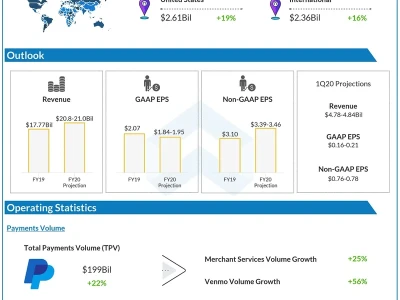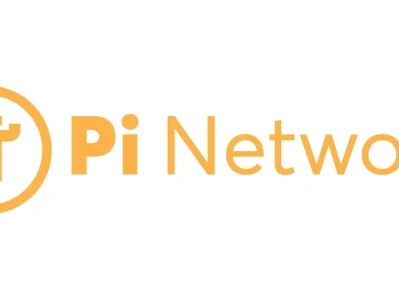I get it. When most people hear the name SoFi, they think of one of two things: the company that helped them refinance their student loans, or the giant, gleaming football stadium in Los Angeles. Both are true, but focusing on them is like looking at the Wright brothers' first flyer and only seeing wood and canvas. You miss the entire point. You miss the dawn of a new age.
What I see when I look at SoFi isn't just another fast-growing fintech company or a decent stock pick. I see the construction of something far more profound: a unified financial operating system for our lives. This isn't just about offering a checking account next to a loan application. This is about rewiring our very relationship with money into a single, seamless, intelligent loop. And if you’re not paying attention, you’re missing one of the most important shifts happening in finance today.
Let's be clear, the raw numbers are impressive enough. We're talking about a user base that has exploded to over 12 million members, a 35% jump year-over-year. But numbers are just the exhaust fumes of a powerful engine. The real magic is the engine itself—what the company calls its "Financial Services Productivity Loop." It sounds like corporate jargon, but I want you to imagine it as something more intuitive.
Think about the Apple ecosystem. You buy an iPhone, a fantastic standalone product. But soon you’re using iCloud for your photos, Apple Music for your playlists, and the App Store for everything else. Each product makes the others more valuable, creating a gravitational pull that is almost impossible to escape. It’s a seamless world. That is precisely the blueprint SoFi is executing for your wallet. You might come for a high-yield savings account, but then you discover a slick investing platform, a competitive credit card, and a tool that tracks all your finances in one place. Each new product you adopt makes the entire SoFi experience more personalized and more powerful.
When I first mapped out their strategy, especially after their acquisitions of banking infrastructure companies Galileo and Technisys, I honestly just sat back in my chair, speechless. This wasn't a bank buying new features; this was an ecosystem building its own central nervous system. This is the kind of breakthrough that reminds me why I got into this field in the first place.
The Invisible Architecture of the Future
Here’s the part of the story that most analysts and investors completely overlook, because it’s not as sexy as a consumer-facing app. SoFi isn't just building its own beautiful skyscraper; it's also manufacturing the steel girders, the plumbing, and the electrical wiring for everyone else's buildings.
Through its technology arm, SoFi provides the core banking infrastructure for a whole host of other fintech companies. They’re building what’s called a "composable digital banking platform"—in simpler terms, it's like a box of financial LEGO bricks that other companies can use to build their own banking products, all powered by SoFi's technology. They are simultaneously building a beloved consumer brand and the invisible rails that a huge chunk of the next generation of finance will run on. It’s a vertically and horizontally integrated play that we just haven’t seen at this scale in consumer finance before, and the implications for the slow-moving, siloed legacy banks are just staggering.

This isn’t an incremental improvement. This is a paradigm shift. We’re witnessing a change as fundamental as the move from individual craftsmen to the factory assembly line. Before, every new fintech had to painstakingly build its own financial plumbing from scratch. SoFi is creating the standardized, high-performance factory that can churn out financial services at an unprecedented scale and speed. Can you imagine the innovation that unlocks? When the brightest minds are freed from rebuilding the basics and can instead focus on creating genuinely new experiences for us?
Of course, this raises important questions. As we move toward this hyper-integrated reality, we have to think about the responsibilities that come with it. What does it mean for our privacy and security when one company knows not just what we buy, but how we save, where we invest, and what our biggest dreams are that we're borrowing for? These aren't trivial concerns, and they're conversations we need to be having as we build this new world.
So, Is It a "Millionaire-Maker"?
I see the headlines all the time, asking questions like, "Is SoFi Technologies Stock a Millionaire Maker?" With analysts projecting massive earnings growth and the stock performing well, it's a tempting question. A $10,000 investment today could be worth over $160,000 in two decades, according to some aggressive models.
But I have to be honest: I think that question, while understandable, completely misses the point. It’s like asking if the invention of the internet was a good way to sell more encyclopedias. The real story isn't about the potential for a single stock to multiply. The real story is about how this platform will fundamentally change the financial lives of millions of people.
The financial system we've inherited is a clunky, fragmented mess of disconnected accounts, legacy institutions, and frustrating bureaucracy. It was built for a world that no longer exists. What SoFi is building is something native to our digital world—an intelligent, adaptive, and holistic system designed to work for us, not against us. It’s a vision where your savings, your investments, and your spending all communicate, working together to help you reach your goals.
Will it be a smooth ride? Of course not. The financial industry is fiercely competitive, and the old guards won't go down without a fight. But the trajectory is clear. The demand for a smarter, more integrated financial life is undeniable. The question isn't if this future is coming, but who will build it. Right now, SoFi isn't just in the race; they're drawing the map.
The Blueprint for Tomorrow's Wallet
Forget thinking of SoFi as just another bank or a hot tech stock. That’s yesterday’s language. What we're witnessing is the prototype for a new kind of financial entity—a single, responsive, and deeply integrated system that acts as the operating system for your entire economic life. It’s the first real, at-scale glimpse of what a financial institution born in the digital age, for the digital age, can truly become. And it’s going to change everything.

